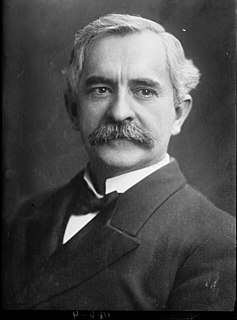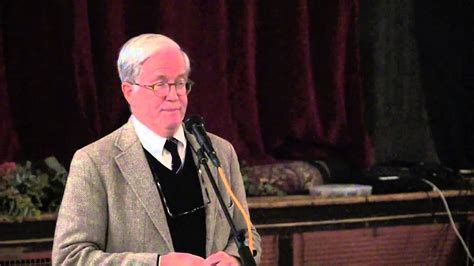A Quote by A. C. Dixon
Through the death of Christ on the cross making atonement for sin, we get a perfect standing before God. That is justification, and it puts us, in God's sight, back in Eden before sin entered. God looks upon us and treats us as if we had never sinned.
Related Quotes
Accommodation is a central aspect of the cross-centered interpretation of violent portraits of God that I'm advocating. Like everything else in Cross Vision, this concept is anchored in the cross. On the cross, God stoops to meet us, and to enter into solidarity with us, right where we are at, which is in bondage to sin and to Satan. And he does this to free us and to bring us where he wants us to be, which is united with him in Christ. The cross is thus the paradigmatic example of God mercifully stooping to accommodate people in their fallen conditioning.
The atonement, or forgiveness of sin once and for all achieved on the cross, weighs in, and heavily. But the atonement is confirmed, ratified, sealed, and made enduringly good by virtue of Christ's rising from death. Our justification hinges on a risen life, present in us now because Christ is present with us now.
The gospel is saying that, what man cannot do in order to be accepted with God, this God Himself has done for us in the person of Jesus Christ. To be acceptable to God we must present to God a life of perfect and unceasing obedience to his will. The gospel declares that Jesus has done this for us. For God to be righteous he must deal with our sin. This also he has done for us in Jesus. The holy law of God was lived out perfectly for us by Christ, and its penalty was paid perfectly for us by Christ. The living and dying of Christ for us, and this alone is the basis of our acceptance with God
Within each of us exists the image of God, however disfigured and corrupted by sin it may presently be. God is able to recover this image through grace as we are conformed to Christ. Just as the figure of David lay hidden within the marble, discernible only to the eye of its creator, so the image of God (however tarnished by sin) lies within us, see and known by God Himself. Yet God loves us while we are still sinners. He doesn't have to wait until we stop sinning. Acceptance of His love is a major step along the road that leads to our liberation from the tyranny of sin.
Jesus Christ was the only one capable of performing the magnificent Atonement because He was the only perfect man and the Only Begotten Son of God the Father. He received His commission for this essential work from His Father before the world was established. His perfect mortal life devoid of sin, the shedding of His blood, His suffering in the garden and upon the cross, His voluntary death, and the Resurrection of His body from the tomb made possible a full Atonement for people of every generation and time.
Our inhuman enemy inspires the thought that God loves mankind, and that He quickly forgives this sin. But when we observe the guile of demons, then we see that after the commission of the sin, they suggest to us that God is a righteous and implacable Judge. The first they say in order to lead us to sin, the second, in order to weigh us down in despair.
To be "in Christ" is to place one's trust in Him for salvation from sin. To be "in Christ" is to trust His goodness, not our own; to trust that His sacrificial death on the cross paid the complete debt of death we owe for our sin; to trust that His resurrection gives us eternal life instead of relying upon our own ability to please God. To be "in Christ" is to claim, by faith, the free gift of salvation. To be "in Christ" is to enjoy a completely restored relationship with our Father in heaven by virtue of His Son's righteous standing.
The story of the gospel is so much better than the legal model suggests. It tells us that we are created as God's partners, not God's enemies. Sin does a lot of damage to that partnership - it disables us, it discourages us, it disturbs us - but it never destroys the bond that exists between God and humanity.
God's love has a width, length, height, and depth, but we will never reach the end of it. Our capacity to experience God's love will be exhausted long before God's capacity to give it is strained. The picture of having Christ dwell inside us by faith presents us with compelling and comforting possibilities. What Christ does in us and through us will always be 'exceedingly abundantly above all we ask or think.'































